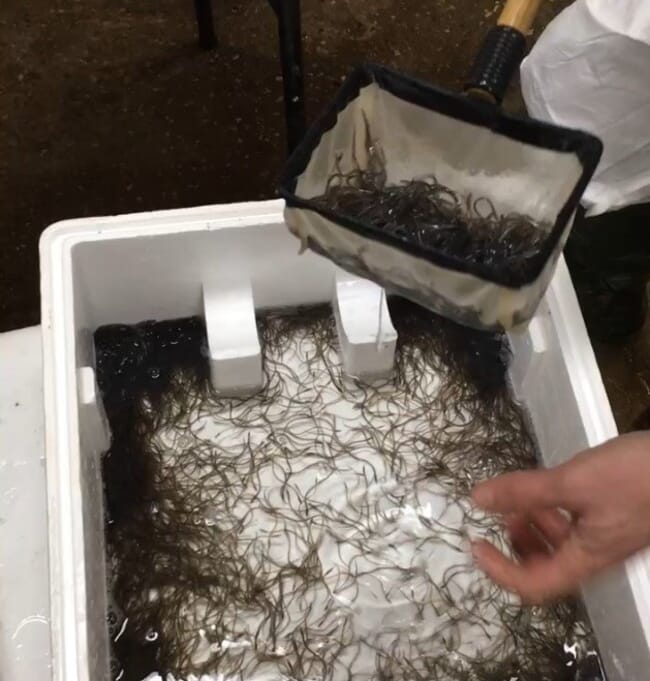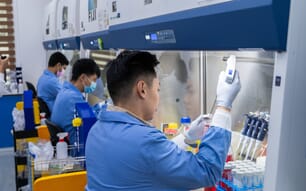In the first prosecution of its kind in the UK, Gilbert Khoo was sentenced to 24 months imprisonment, suspended for two years, and will be required to undertake 240 hours of community service.

The conviction followed a three-year investigation by inspectors from Cefas’ Fish Health Inspectorate (FHI), the UK Border Force and National Crime Agency (NCA).
Khoo had been importing eels from Spain and repackaging them at a barn in Gloucester before exporting again. Investigators estimate that in two years Khoo exported or had attempted to export 1,775 kg of eels, with an estimated value of £53 million, on the East Asian black market, where they are considered a delicacy. These eels are an endangered species and there are strict legal controls on their export.
On the 15 February, specialist Border Force officers, seized a consignment of 200kg of juvenile European eels (known as glass eels), worth at least £5.7 million on the black market, at Heathrow Airport, that were destined for Hong Kong. Cefas Fish Health Inspectors then took charge of the animals and took them to the Weymouth Sea Life Centre, Dorset, where they were cared for by the aquarists there until the FHI were able to repatriate the eels to Spain for release back into the wild.
The FHI were key in compiling evidence leading to the prosecution with Cefas’ Jon Hulland and Debbie Murphy being cross examined as witnesses during the court case.
Enforcement and Investigations Inspector Jon Hulland said: “This is a landmark case for us and will send an extremely strong message to the criminal fraternity that the Fish Health Inspectorate will take action against anyone who is found to have acted in defiance of the law.
“The risk to our country’s aquatic animal health posed by illegal trade such as this cannot be underestimated. In this case the severity of the offence is compounded by the fact that the trade is in a critically endangered species.
“By taking an intelligence led approach to our enforcement work and regularly collaborating with partner agencies such Border Force and the NCA, we have ensured that this environmental crime will not go unpunished.
“It was an added bonus that we were able to repatriate this critically endangered species by working closely with colleagues in the Spanish Authorities and UK Border Force”
The Fish Health Inspectorate, based at Cefas’ Weymouth laboratory, are the competent authority for the detection and prevention of serious and notifiable disease in aquatic animals in England and Wales. They also regulate and monitor trade, and through this role first became suspicious of Khoo’s business practices. In this financial year alone, Inspectors have undertaken over 1,350 inspections on aquaculture production businesses (fish and shellfish farms) across England and Wales. Their work helps prevent the introduction and spread of serious diseases, reducing industry losses from disease, improving biosecurity, and helping protect valuable natural resources. The FHI is also the main provider of advice to Defra on EU Exit and the transition period in relation to trade issues for live aquatic animals.


